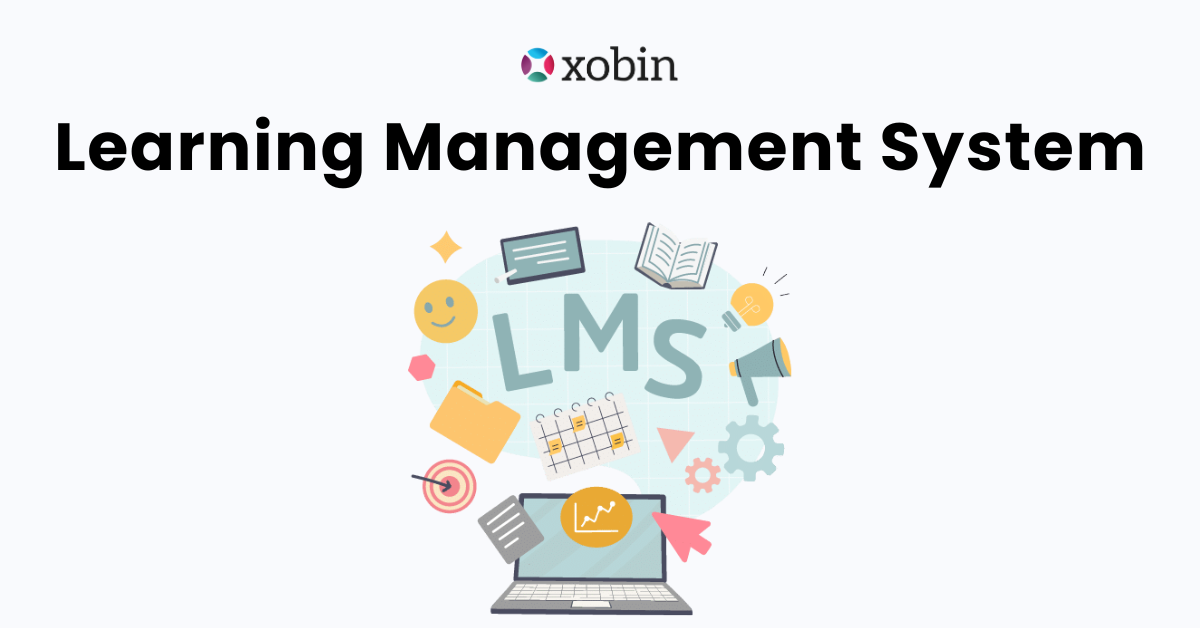XOBIPEDIA
HR Glossary

Currently, there nearly 73.8 million people are using the learning management system(LMS). The LMS market is expected to reach a value of $22.4 billion by 2023.
A growing number of companies are choosing LMS as an option to deliver their online training to their employees. So we must discuss what a learning management system is and why it is important.
What is a Learning Management System?
LMS, also known as learning active management, is a software application that handles all aspects of the learning process.
If a company wants to train its employees based on the new advancements in the market, they can use the course builder in LMS to create documents, quizzes, certifications, etc., for the same. The employees who want to do the course can log into LMS and take it.
The LMS also helps in keeping track of the progress of every employee, which in return helps the administrator to see if the course is helping the learners or not.

Why is it important?
If a company uses an LMS system to train its employees, the same employee gets quick and easy access to all the learning tools available there.
It also makes it easier to train an employee according to their job functions. With this kind of option, it becomes easy to ensure that the employees have the right skills while monitoring the investment in additional training too.
It also helps in keeping all the data in an organized, secure way, and all the HR systems could have access to it. The employees can also personalize the training according to their needs.
It is cost-effective and time-saving too.
What entails in LMS?
There are 2 types of Learning management systems locally hosted and vendor-hosted.
In the case of a vendor-hosted system, the data is housed by the supplier and accessed by users through the internet from anywhere. And in the case of a locally hosted system, the data is hosted internally on the user’s internal server.
Using LMS, the organizations can create and integrate the course materials align content and assessments, keep track of the students progress, and much more. It allows the communication of all learning objectives and keeps them organized too.
Best practices and styles in LMS
The best practices and styles that can be used by your organization in a learning management system are:
- You should have a clear goal and understanding of what you are trying to achieve from this. Prioritize your goals from essential to a feature.
- Putting the right team together is an important part to manage and plan anything in the organization. Make sure that your team contains all the essential members like a team leader, e-learning specialist, HR specialist, etc.
- Factor in the growth that you want to see in the future.
- Plan the budget and analyze the financial requirements.
- Factor in all the problems that you can face along the way and be prepared for them
We hope this article helped you. For more interesting articles;

Recommended Content

Video Interviews can simplify your hiring
Don’t let a packed schedule be a hindrance in recruitment. Use structured interviews with the power of video to screen applicants. Understand the communication skills, motivation, and job skills using video interviews.

Pre-employment Testing: The Complete Guide
Move over from pen-paper based tests and manually checked assignments to pre-employment assessments. Democratize your organization hiring by screening for skills before you interview.

How can Employers adapt to Remote Hiring
With most jobs going remote, your best applicants could be in Melbourne or Miami. From remote screening and virtual interviews to remote onboarding, Learn the best practices to get started.


